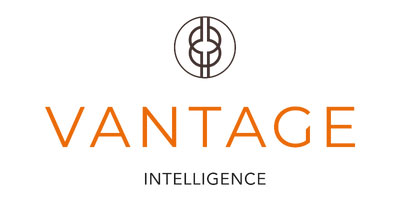Knowledge Hub
Join the Conversation!
Impartial and independent, ThoughtLeaders4 FIRE Knowledge Hub hosts cutting edge industry content and insight.
Email maddi@thoughtleaders4.com to submit content.
Civil Fraud Quarterly Round-Up: Q2 2020
Date: 15/07/2020 Type: Articles Topic: FIRE | Civil Fraud |FREEZING INJUNCTIONS
The Defendant’s threat to move overseas assets to jurisdictions where enforcement would be difficult was evidence of a real risk of dissipation of assets in (1) Motorola Solutions Inc (2) Motorola Solutions Malaysia SDN BHD v (1) Hytera Communications Corp Ltd (2) Hytera America Inc (3) Hytera Communications America (West) Inc: (1) Motorola Solutions Inc (2) Motorola Solutions Malaysia SDN BHD v (1) Hytera Communications Corp Ltd (2) Hytera America Inc (3) Hytera Communications America (West) Inc (4) Project Shortway Ltd (5) Sepura Ltd.
In Arcelormittal USA LLC (Claimant) C Ravi Ruia & 7 Ors (Defendants) & VTB Bank PJSC (Interested Party) the High Court considered an on notice application for a freezing injunction and found that the Claimant had failed to show a good arguable case, or that there was a risk of dissipation of assets. These factors, plus a delay of at least seven months in making the application and issues relating to jurisdiction meant that the Court refused to make the requested freezing injunction.
The Claimant in McKeever v Northernreef Insurance successfully applied to continue a post judgment freezing injunction and to extend it under the Chabra jurisdiction to non-parties believed to be holding some of the Defendant’s assets. Evidence from bank statements showed funds being received from the Defendant by non-parties which the Court deemed to be sufficient to demonstrate a good reason to believe that the non-parties held assets belonging to the Defendant.
I wrote about the Eastern Caribbean Supreme Court (Court of Appeal) decision of Broad Idea International Limited v Convoy Collateral Limited in more detail in my article All Swans are White…? but, in summary, the Court found that the case of Black Swan Investment ISA v Harvest View Limited et al had been wrongly decided and that the Eastern Caribbean Supreme Court did not have the jurisdiction to grant a freestanding freezing order against a person against whom there is no cause of action.
There were two reports published within the case of Les Ambassadeurs Club Ltd v Salah Hamdan Albluewei (aka Sheikh Salanh Hamdan Albluewi & aka Salah Hamdan Albelwi) both relating to freezing injunctions. The first decision related to the discharge of a freezing injunction on the basis that there was no risk of dissipation. The Defendant held assets outside of the UK, including in offshore structures, but that did not demonstrate a risk of dissipation. Likewise there was an inference which could be drawn from the Claimant’s decision to extend credit to the Defendant despite a history of dishonoured cheques, assets outside the UK and the Defendant’s residence in Saudi Arabia that the Claimant believed the Defendant would eventually pay. The second decision related to costs: the Claimant was ordered to pay the Defendant’s costs following the discharge of the freezing injunction. Costs were to be assessed on the standard basis as, despite non-disclosure by the Claimant, there had been no intention to mislead the Court. The Court did not order a payment on account of costs as there was the possibility of set off against the sum claimed, assessment would therefore take place at the conclusion of the proceedings.
The Court of Appeal decision in Caroline Jill Crowther v Paul Anthony Crowther & Others may have been made within divorce proceedings, but it has wider relevance because of the consideration of what types of orders can be made in the context of freezing injunctions. In particular the Court of Appeal found that a freezing order ought not prevent a Defendant from selling an asset in order to invest in other business assets, as the necessary investment would preserve the value of the assets. It was possible to make an order allowing this to occur which was preferable to discharging a freezing injunction in circumstances in which the Claimant had a good arguable case and a risk of dissipation had been established.
In OJSC Trust National Bank v Yurov & Anor (a case I wrote about in my update of Q3 2016 and Q1 2020) the Court removed the allowance included in a freezing injunction which enabled the Second Defendant to spend money on legal expenses on the basis that he was no longer represented by or instructing lawyers. Further, the Second Defendant’s living expenses authorised under the freezing injunction were reduced on the basis that the Second Defendant had shown no evidence of recurring expenditure.
In the case of Sweden v Serwin the Court granted permission to enforce a worldwide freezing injunction against assets in Sweden on the basis that it was just and convenient and ensured the effectiveness of the freezing injunction in circumstances in which the only known assets were in Sweden.
The Court in Rawbank SA v Travelex Banknotes Ltd refused to grant a freezing injunction on the basis that the Respondent was undertaking a restructuring and a freezing injunction would have the result that the Claimant bank’s consent would be requirement for movement of assets in the restructuring. In circumstances in which there was no evidence of evasiveness or risk of dissipation, but the Respondent had failed to comply with all disclosure obligations, the Court did consider it necessary to provide the Claimant bank with some protection and therefore ordered that the Respondent (i) must give seven days’ notice to the Claimant before it disposed of any assets which would have the effect of reducing its assets by more than £5m and (ii) provide an explanation of the purpose of the disposition.
Likewise in (1) Petrochemical Logistics Ltd (2) Axel Krueger v (1) PSB Alpha AG(2)Konstantinos Ghertsos the Court refused to continue a freezing injunction which had been made without notice. Not only was there an insufficient connection with England to justify the continuation of the freezing injunction, there was also insufficient evidence of a risk of dissipation.
CONTEMPT AND COMMITTAL
There have been two reported decisions in the case of (1) Super Max Offshore Holdings (2) Actis Consumer Grooming Products Ltd v Rakesh Malhotra albeit neither of them specifically relate to allegations of fraud: the underlying proceedings being a shareholder dispute. The first decision related to an application to commit the Defendant for contempt of Court on various grounds including alleged breaches of injunctions relating to his role as executive chairman of the group of companies headed up by the First Claimant. The Court found that the Defendant had acted in contempt of Court including making false statements in a witness statement, breaching various orders and taking actions designed to intimidate and prevent two parties from giving evidence at a final hearing. The second decision related to the sentence given. There had been 30 separate findings of contempt of Court with no appreciation by the Defendant of the seriousness of his behaviour, no apology and no acceptance of responsibility. The Defendant was therefore sentenced to a total of 15 months imprisonment, to be stayed pending an appeal. The Claimant was also awarded 90% of its costs of an indemnity basis, with an interim order of £1.3 million, to be paid into Court pending the outcome of the appeal.
In the case of (1) Yuzu Hair and Beauty Ltd (2) Yukiko Dennis v Akilan Selvathiraviam the Court also considered issues of contempt, this time in respect of failures to comply with the disclosure obligations contained in a freezing injunction. A key aspect of this decision is that the Defendant did not attend the committal hearing as a result of allegedly suffering from Covid-19 symptoms. The Defendant had a history of non-attendance at hearings as a result of claims of ill-health or injury and had failed to comply with Court orders requiring a medical certificate setting out various pieces of information, and the production of a witness statement by the Defendant describing his symptoms. The Court declined an application to adjourn the hearing, even faced with a request by the Defendant who stated that he was being taken to hospital by ambulance, on the basis that the Defendant had adopted a policy of evasiveness and that his previous conduct led the Court to conclude that the reference to an ambulance being called was more of the same. The Court considered the checklist about proceeding without the Defendant being present, and decided that it could do so. The Defendant was found to be in contempt, although sentencing was adjourned to allow the Defendant the chance to attend, but with the warning that if he did not (or does not) do so, he ran the risk of immediate imprisonment.
The case of Andrew Jozef Frejek v (1) Stephen Robert Frejek (2) Susan Maria Foote dealt with another hearing for committal without the Defendant being present. Again, this case did not relate to fraud, but instead to a failure to comply with an Order requiring the First Defendant to transfer papers and funds to the Claimant. The First Defendant failed to do so and the Claimant issued a committal application. The grounds of contempt were made out but again the Court did not deal with sentencing in the absence of the Defendant. Instead the Court issued a bench warrant so that the First Defendant could be brought before the Court for sentencing.
The Court struck out an application for committal for contempt of Court in (1) Navigator Equities Ltd (2) Vladimir Anatolevich Chemukhin v Oleg Vladimirovich Deripaska on the basis that the application was an abuse of process pursued out of personal animosity rather than because of any serious misconduct.
Similarly in the case of (1) Evelyn Green (2) David Robert Green (3) Ian Mablin v Robert Alfred Hurst the Court refused the Defendant permission to bring committal proceedings in respect of statements made in a claim brought against him. The Defendant had failed to establish a strong prima facie case that the Claimants had knowingly made false statements, or been reckless as to their truth. Further it was not in the public interest that an application for committal for contempt be brought.
CONSPIRACY
In RP Explorer Ltd (formerly RP Explorer Master Fund) v (1) Sanjay Malhotra (2) Gagan Rastogi the Court considered the position in which a Defendant who was accused of conspiracy and deceit was in prison in Dubai. Shortly before trial the Court received an email from the First Defendant stating that he had not been served with any documents relating to the case, was not in a position to defend himself or instruct lawyers and that he did not submit to the jurisdiction of the English Court. The Claimant argued that the First Defendant had been properly served and had ample time to arrange representation. The Court considered whether the nature of the case was such that the First Defendant’s personal testimony would be required and concluded that it was, further the First Defendant had, by writing to the Court expressed a desire to instruct solicitors and participate in the proceedings (albeit he had indicated that he did not submit to the jurisdiction). The trial was adjourned to enable the Court to consider what steps could be taken to ensure that the First Defendant could participate.
The Court considered an interesting question in Raja v McMillan namely whether a conspiracy is possible between an individual and various corporate alter-egos. The Defendant had applied to strike out the claim on the basis that it is impossible to conspire with oneself. However, the Court was not persuaded given the fact that a company has a separate legal personality to its directors or shareholders, drawing an analogy between a director contracting with his own company and conspiring with it.
INSOLVENCY
Section 1782 of Title 28 of the United States Code (“s.1782”) was used to compel a witness to give evidence by video link in the case being heard by the High Court of England and Wales of ACL Netherlands BV (as successor to Autonomy Corporation Limited) and others v Dr Michael Lynch and Sushovan Hussain. The application to rely on s.1782 was resisted on the basis that it was not intended to apply to testimony in an overseas trial and had never been used for this purpose. However, the US Court granted the application, commenting that the world had changed.
In (1) Paul Atkinson (2) Glyn Mummery (as joint liquidators of Grosvenor Property Developments Limited) v (1) Sanjiv Varma (2) Argun Khadka (3) Grosvenor Consultants FZE (4) Siddhant Varma (5) Jonathan England (which I discuss in respect of a different application in my update of Q3 2019) the Court found that the First Defendant was a de factor director of the Third Defendant, had spent or received significant amounts of company money for his personal purposes and had sought to disguise payments made to the Third Defendant. The Court also found that a person held out as being the UBO of the company did not in fact exist.
STRIKE OUT
The Court applied the equitable doctrine of laches to strike out the claim in Whatley v Lougher & ors which had been issued twelve years after the Claimant first had knowledge of the facts of the fraud.
In Alexander Christoforou v (1) Christakis Christoforou (2) Gracestone Properties Group Limited the Claimant applied to strike out parts of the Defendants’ amended Defence and Counterclaim which allege that the claim itself is one episode in a series of attempts by the Claimant and other family members to misappropriate or deprive the First Defendant of his assets. The Court considered whether it would be an abuse of process to plead the allegations, what impact they would have on the length of trial, whether the trial listing could be retained, whether more disclosure and witness evidence would be required and, concluding that justice could still be done to the Defendants, granted the application to strike out the passages complained of. The Court did invite submissions about a suitable form of Order to ensure there could be cross examination on some aspects included in the offending passages, if appropriate at trial.
The Court of Appeal granted an appeal against the strike out of the claim in Robert Sofer v Swissindependent Trustees SA (which I discuss in my update of Q3 2019). The CA decided that the Court at first instance had taken too strict a view of the need to plead the relevant state of knowledge of a body corporate and should have allowed the Claimant to amend the pleadings rather than striking out the same.
USE OF DOCUMENTS/INFORMATION
In Official Receiver v (1) Andrew Nathanial Skeene (2) Junie Conrad Omari Bowers the Court considered the use of affidavits in proceedings other than those in which they were made and whether the Official Receiver could provide to the Serious Fraud Office a copy of an affidavit sworn by the First Defendant in director’s disqualification proceedings. Under CPR 32.12 a witness statement can only be used for the purpose of the proceedings in which it is served but CPR 32.15, which governs affidavits, does not contain the same restriction. The Court concluded that where an affidavit is provided under compulsion it is subject to an implied undertaking that it would be used only for the purpose of the proceedings in which it had been made. The Court’s permission was required for any other use. However, the affidavit produced in the disqualification proceedings was not made under compulsion and there was therefore no restriction on its use. The Court also considered whether the exhibit to the affidavit should be disclosed and concluded that it had been produced voluntarily and it was clearly in the public interest for disclosure to take place, further, there would be no injustice to the Defendants by disclosure.
The issue in question in Berkeley Square Holdings & Ors v Lancer Property Asset Management Ltd & 5 Ors was whether statements given in a mediation some five years earlier could be adduced. The statements could rebut allegations of fraud and, as such, the Court found that, either on the basis of the misrepresentation/fraud exception or by a small and principled extension of it to serve the interests of justice, it was appropriate to apply an exception to the rule that without prejudice documents are inadmissible.
DERIVATIVE CLAIMS
In (1) Gareth Hamblin (2) Marilyn Hamblin v (1) World First Ltd (2) Moorward NL Ltd the Court considered an application brought by the First Defendant to strike out the claim which had been brought by the Claimants as a derivative action on behalf of the Second Defendant in whose name an account had been opened with the First Defendant. The account had in fact been opened by a fraudster. The Claimants alleged that when their money was paid into the account held by the First Defendant on behalf of the Second Defendant, those funds were held on trust, in favour of the Claimants, with the Second Defendant as Trustee. The Claimants alleged that the First Defendant had no authority to pay funds out of the account, should have realised that the payments were not authorised, and that the First Defendant owed a Quincecare duty to the Second Defendant. The Court considered that claims brought under the Payment Services Regulations 2017 were arguable and should be considered at trial. The Claimants had not seen the account opening information for the account in the Second Defendant’s name, which might impact on the outcome of the claims, but that was not a matter for summary judgment or strike out. Likewise the claims for breach of the Quincecare duty were arguable and were complex matters which were not suitable for summary dismissal. It was also arguable that the Claimants were entitled to bring representative proceedings.
RECTIFICATION OF TITLE
In Simer Kaur Dhillon v (1) Barclays Bank Plc & Anor (2) Chief Land Registrar the Court of Appeal considered whether the first instance Court (whose decision I discuss in my update of Q1 2019) had been entitled to dismiss a claim for rectification of the register held by the Land Registry. The Claimant/Appellant had been a tenant of a local authority property which was purchased in her name in 2002 as a result of a fraud by her husband. Shortly after the purchase the property was transferred to a company and refinanced with the Defendant bank. The Claimant/Appellant commenced proceedings seeking to transfer the property into her name, which resulted in the property being so transferred, subject to the Defendant Bank’s charge. The Claimant/Appellant then applied to remove the charge from the title, which was rejected by the first instance Court. The Court of Appeal upheld that decision on the basis that had the title been rectified the Claimant/Appellant would have been the owner of an unencumbered valuable property for which she had not paid a penny and could not have afforded to buy. Non –rectification was just and proportionate as it left her as the registered owner, subject to a mortgage, which would have been the case had she exercised her right to buy.
About the author
Mary Young is a Partner in the Dispute Resolution team. Her practice covers a wide range of areas but Mary’s particular interests and expertise lie in civil fraud and asset tracing as well as claims against professionals in negligence, breach of fiduciary duty and breach of trust.
Author
Mary Young - Kingsley Napley
Our FIRE Corporate Partners





































